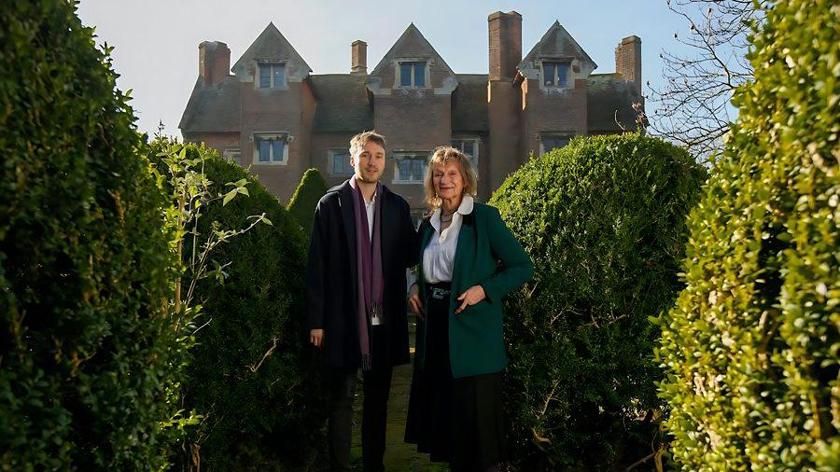Could psychedelic drugs treat alcohol use disorder?

Beckley Psytech CEO Cosmo Feilding Mellen and chair of scientific advisory board Lady Amanda Feilding
A new clinical trial is hoping to show that treatment with a psychedelic drug in development at UK startup Beckley Psytech could help people battling alcohol use disorder (AUD).
The new study will be carried out by researchers at King’s College Hospital in London using BPL-003, a formulation of the psychoactive compound 5-MeO-DMT – recently given the moniker mebufotenin by the World Health Organization (WHO) – which is found in a wide variety of plant species, as well as the Colorado River toad.
The open-label phase 2a study will test a single dose of BPL-003 in combination with relapse prevention psychological support in 12 people with AUD who are deemed suitable for pharmacological therapy for the condition and are heavy drinkers, with a minimum of 10 heavy drinking days in the four weeks before enrolment.
Other psychedelic compounds have also been tested for their potential in treating AUD alongside guided psychotherapy, including psilocybin – the psychoactive component of magic mushrooms – which was shown to reduce the risk of relapse in a 93-subject trial reported last year.
That study used two doses of psilocybin or a matched placebo, with 12 psychotherapy sessions, and showed that 80% of subjects taking psilocybin had significantly reduced their alcohol intake in the eight months after the study ended, compared to 50% of the control group.
At the end of the trial, around half of those who received psilocybin had quit drinking altogether, compared to about a quarter of those who were given the placebo, according to the results of the trial.
Beckley’s study – designed in collaboration with Professor John Marsden, an addiction expert psychologist from the NIHR Maudsley Biomedical Research Centre at KCL – will follow the study subjects for 12 weeks to give a preliminary view of the effects of BPL-003 on alcohol use and related symptoms. It is due to generate results later this year.
The drug has already been shown in phase I studies to be well-tolerated with consistent dose delivery, predictable behaviour in the body, and reliable induction of psychedelic experiences, and is also being tested for treatment-resistant depression in a phase 2a study.
According to Beckley’s chief executive, Cosmo Feilding Mellen, there is mounting evidence of the therapeutic effect of psychedelics for substance use disorders.
“We are proud to be at the forefront of this field of research, exploring how short-acting formulations like BPL-003 might address and reduce the burden that conditions like alcohol use disorder have on individuals, society, and healthcare systems more broadly,” he said.
“We are committed to the rigorous scientific investigation of these compounds, and we look forward to enrolling the first patient in this study in the coming weeks.”
Beckley acquired fellow UK psychedelics company Eleusis Therapeutics last year, adding a patented IV formulation of psilocin, the active metabolite of psilocybin, to its pipeline.
The company was developing its own oral formulation of psilocybin for the treatment of short-lasting unilateral neuralgiform headache attacks (SUNHA), but dropped the programme in order to focus on more promising projects.













